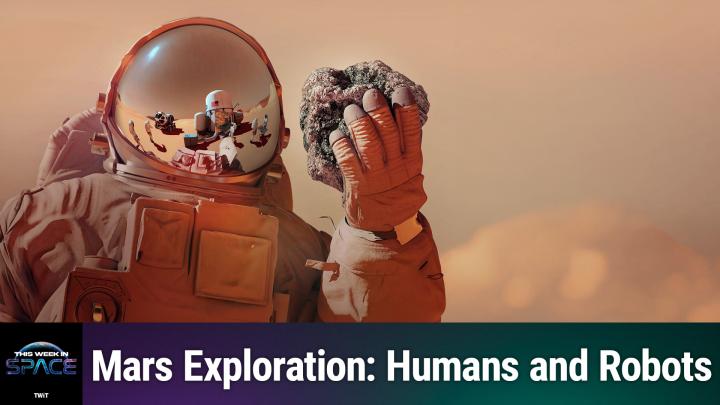NASA Signs Space Act Agreements with Three More Firms
Breaking space news, the latest updates on rocket launches, skywatching events and more!
You are now subscribed
Your newsletter sign-up was successful
Want to add more newsletters?
WASHINGTON ?NASA has agreed to monitor the progress of three more private firms that aim tofield new space transportation systems that could carry cargo and/or astronautsto the international space station.
The U.S.space agency announced June 18 that it had signed separate non-reimbursableSpace Act Agreements with Constellation Services International (CSI), SpaceDevand Spacehab pledging to provide each of the three with up-to-date technicalrequirements and specifications for crew and cargo flights to the internationalspace station. Similar agreements were announced in February with Reston, Va.-basedTransformational Space Corp. and Chicago-based PlanetSpace Inc.
"This is asignificant development," Scott Horowitz, NASA associate administrator forexploration systems said in a statement. "First there were two, and now thereare a total of five private companies cooperating with NASA by dedicatingentirely private funding to help establish a robust commercial spacetransportation industry."
CSI, SpaceDevand SpaceHab all submitted proposals in early 2006 for some of the $500 millionNASA plans to spend under the Commercial Orbital Transportation Services (COTS)demonstration program subsiding new space station re-supply services. The COTSawards ultimately went to Oklahoma City-based Rocketplane Kistler and ElSegundo, Calif.-based Space Exploration Technologies, but SpaceDev, Spacehaband Transformational Space were among the six finalists.
Unlike RocketplaneKistler?s and SpaceX?s COTS awards, this year?s crop of Space Act Agreementsinclude no financial support. However, NASA has agreed to share informationthat will help the companies monitor their progress as they seek to developvehicles that could ferry cargo and crews to the space station.
"Itprovides a legal mechanism for NASA to give unfunded support and technicalassistance. They can provide technical assistance without giving us any money.That is useful," CSI President Charles Miller said in a telephone interview."It is also a statement of confidence in the fundamentals of our cargo system."
CSI?sproposed solution to NASA?s space station cargo needs entails launching aRussian-built cargo container atop a U.S. rocket, such as the Atlas 5. Once inorbit, the cargo container would be retrieved by an unmanned Russian Progresscargo spacecraft ?already docked to the international space station. The Progressthen would transport CSI?s container to the space station to unload itssupplies.
Breaking space news, the latest updates on rocket launches, skywatching events and more!
The beautyof CSI?s approach, Miller said, is that "99 percent" of the hardware needed forLEO Express already has flown in space. Miller said CSI could be ready toconduct its first demonstration flight by November 2008 provided work on thespacecraft resumes soon. CSI?s development activities are on hold until thecompany finds a new source of funding.
"We are ina holding pattern. Our next real task is to sign up either customers orinvestors to advance the development," Miller said.
CSI hasraised and spent roughly $5 million to date, about $3 million of which camefrom a NASA study contract awarded in 2002 that has since expired. Withinvestors on standby waiting for CSI to sign up a customer for its systems,Miller said he and CSI?s other principals have been doing consulting to bringin revenue.
Spacehabdid not immediately disclose details about its proposed cargo system but saidin a press release that the Houston-based company?s "technical approachutilizes existing flight-proven hardware, significantly reducing technical riskand development costs."
SpaceDevPresident Mark Sirangelo did not immediately respond to an e-mail requestingcomment, but Jim Benson, founder of the Poway, Calif.-based company told SpaceNews in an e-mail June 18 that SpaceDev is pursuing a cargo and crewtransportation system.
"Eventhough this Agreement is currently unfunded, such anagreement is a prerequisite to getting funding, which may or may nothappen, depending on many constantly changing factors, including theperformance of current COTS awardees," said Benson, who left SpaceDev late lastyear to found Benson Space Company.
NASA?scurrent COTS awardees are required to meet periodic technical, programmatic andfinancial milestones in order to continue receiving government financialassistance.
RocketplaneKistler, NASA disclosed last week, missed its May financial milestone. But theU.S. space agency intends to continue subsidizing Kistler?s development of theK-1 reusable launcher for now. "RpK has made progress in developing itscapability and NASA is hopeful the company can complete this milestone withsome schedule adjustments," NASA spokeswoman Beth Dickey said in a June 13 statement.
NASA hassaid it intends to let companies beyond Rocketplane Kistler and SpaceX submitproposals when NASA solicits bids for actual space station re-supply servicesdown the road. NASA Administrator Mike Griffin said as recently as March thatthe agency would solicit such bids in 2009, but Dickey told Space News June 18 thatthe procurement plan for what the agency is calling COTS Phase 2 is still underconsideration.
?"NASA hasbegun preliminary planning efforts associated with COTS Phase 2 procurement.The Commercial Crew and Cargo Program Office and the COTS project have notdeveloped a procurement schedule yet," Dickey said.
?
Brian Berger is the Editor-in-Chief of SpaceNews, a bi-weekly space industry news magazine, and SpaceNews.com. He joined SpaceNews covering NASA in 1998 and was named Senior Staff Writer in 2004 before becoming Deputy Editor in 2008. Brian's reporting on NASA's 2003 Columbia space shuttle accident and received the Communications Award from the National Space Club Huntsville Chapter in 2019. Brian received a bachelor's degree in magazine production and editing from Ohio University's E.W. Scripps School of Journalism.
